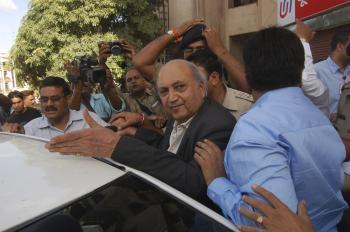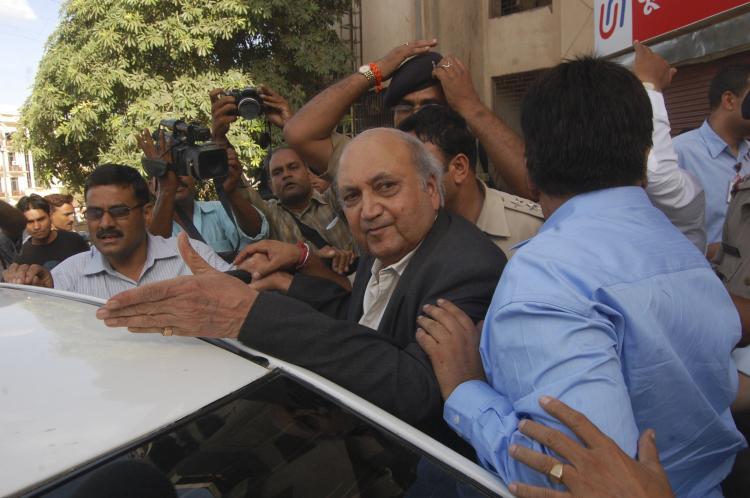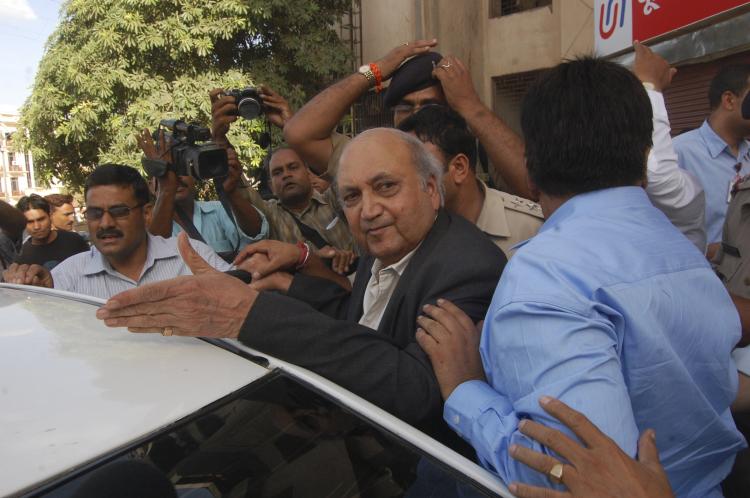First Convictions for 1984 Bhopal Gas Tragedy
Indian court declared eight Indian nationals guilty of negligence in 1984 Bhopal gas tragedy.

Former chairman of Union Carbide India Limited (UCIL) Keshub Mahindra (C) leaves a courthouse in Bhopal on June 7. An Indian court sentenced the former top managers of the company blamed for the massive Bhopal gas leak to two years in prison on Monday. These are the first convictions over the catastrophe which poisoned tens of thousands of people in the world's worst industrial accident. AFP/Getty Images
|Updated:

